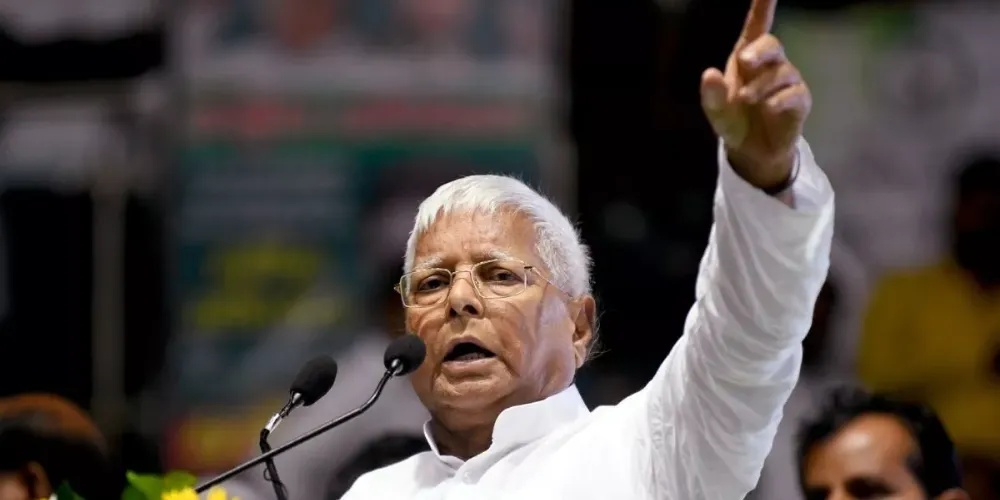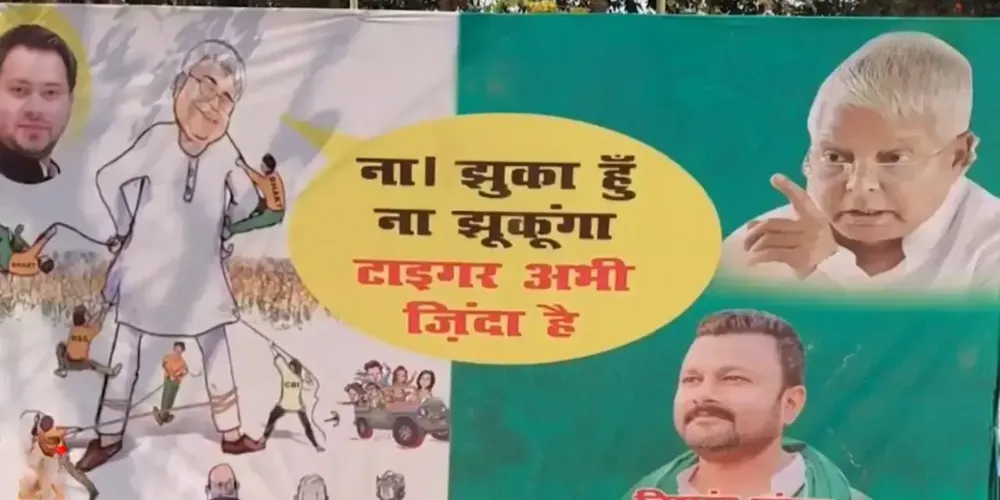Introduction
Amid ongoing investigations, Rashtriya Janata Dal (RJD) chief Lalu Prasad Yadav remains at the center of political attention in Bihar. Following his recent questioning by the Enforcement Directorate (ED) in connection with alleged corruption cases, his supporters have launched a spirited defense, putting up posters across Patna declaring, “Tiger Abhi Zinda Hai.” The phrase, borrowed from a popular Bollywood film, is being used to signal that Lalu Yadav remains politically strong despite legal troubles.
The move comes as a show of strength by RJD workers, who see the ED’s actions as politically motivated. As Bihar’s politics heats up, the poster campaign reflects Lalu Yadav’s enduring influence and the fierce loyalty of his supporters.
Posters as a Symbol of Political Defiance
The “Tiger Abhi Zinda Hai” posters have appeared across Patna, featuring images of Lalu Yadav with slogans portraying him as a fighter who refuses to bow down to pressure. For his supporters, the message is clear—despite health concerns and legal battles, their leader remains a force in Bihar’s political landscape.
RJD leaders argue that the ED questioning is an attempt to weaken opposition voices ahead of upcoming elections. The party maintains that Lalu Yadav has always stood for social justice and backward-class empowerment, and any action against him is seen as a direct attack on his political ideology.
The poster campaign has also helped rally party workers, reinforcing the idea that Lalu Yadav’s leadership remains unshaken. Supporters believe that the ED questioning will only strengthen their resolve and further mobilize public sentiment in favor of RJD.

Political Reactions and BJP’s Counterattack
The ruling BJP, which shares power in Bihar with the JD(U), has dismissed the poster campaign as a desperate attempt to divert attention from corruption charges. BJP leaders argue that law enforcement agencies are simply doing their job and that allegations of political targeting are unfounded.
At the same time, opposition parties, including the Congress, have extended their support to Lalu Yadav, calling the ED’s actions an example of selective investigation. Many opposition leaders see the case as part of a broader pattern of using central agencies to weaken non-BJP political forces.
Despite these counterarguments, the poster campaign has kept Lalu Yadav in the headlines, ensuring that public sympathy remains with him. For many in Bihar, particularly his core voter base among backward classes, he continues to be seen as a leader who fights against the system.
The Road Ahead for Lalu Yadav and RJD
Lalu Yadav’s political career has been marked by resilience. Even after multiple legal troubles and health challenges, he remains a significant figure in Bihar’s political landscape. The ED questioning is just another chapter in his long political journey, and RJD is determined to turn it into an opportunity to energize its support base.
However, the party faces crucial challenges ahead. With assembly elections on the horizon, RJD needs to consolidate its position and counter the BJP-JD(U) alliance effectively. While Lalu Yadav’s personal charisma remains a strong asset, the party must also focus on a broader strategy to maintain its influence in Bihar.
Conclusion
The “Tiger Abhi Zinda Hai” posters in Patna reflect not just Lalu Yadav’s enduring political relevance but also the unwavering loyalty of his supporters. Whether this show of strength translates into electoral gains remains to be seen, but one thing is certain—Lalu Yadav continues to be a central figure in Bihar’s politics, and his influence is far from over.



